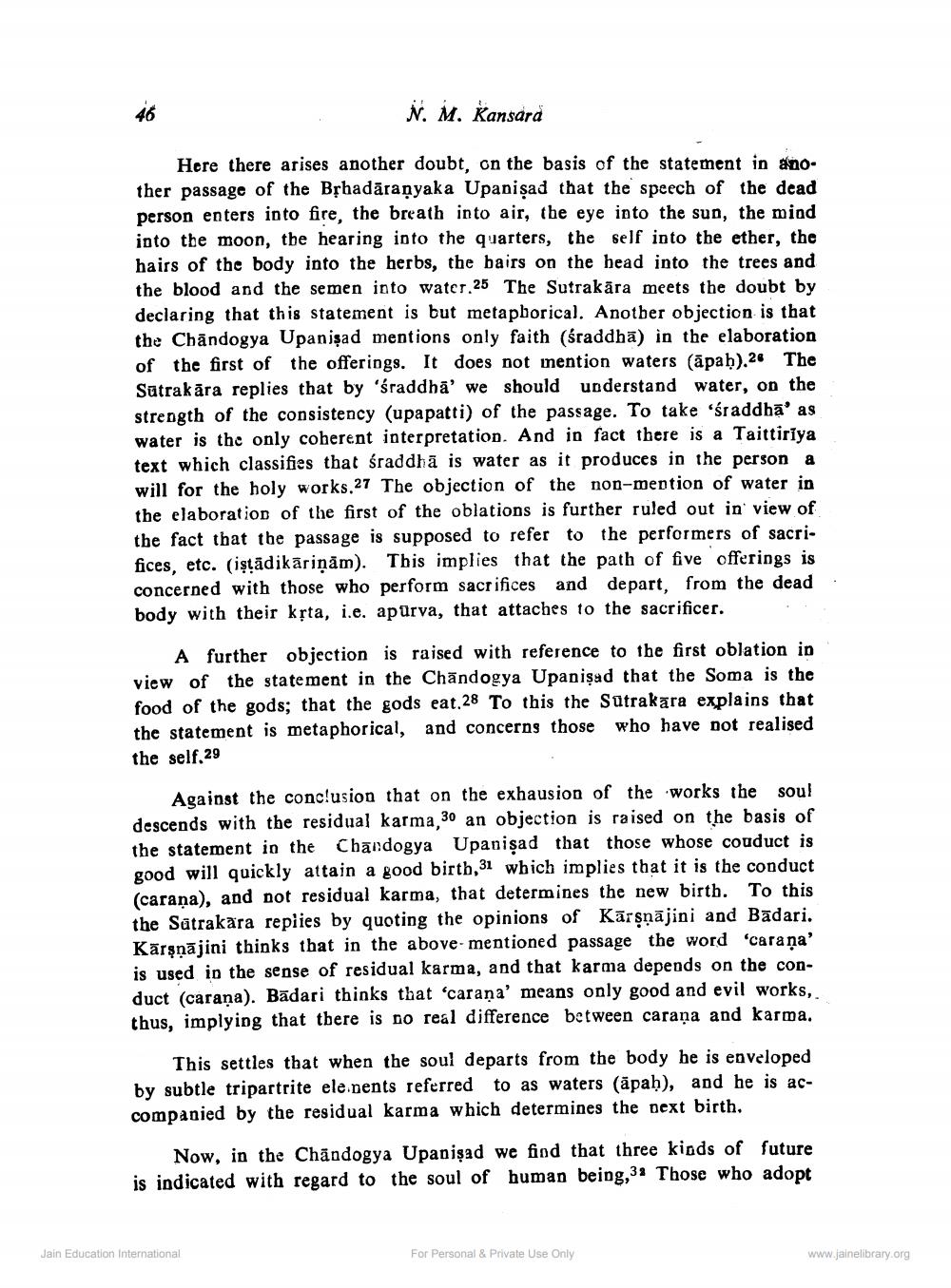________________
N. M. Kansara
Here there arises another doubt, on the basis of the statement in another passage of the Brhadaranyaka Upanisad that the speech of the dead person enters into fire, the breath into air, the eye into the sun, the mind into the moon, the hearing into the quarters, the self into the ether, the hairs of the body into the herbs, the hairs on the head into the trees and the blood and the semen into water.25 The Sutrakāra meets the doubt by declaring that this statement is but metaphorical. Another objection is that the Chandogya Upanisad mentions only faith (śraddha) in the elaboration of the first of the offerings. It does not mention waters (apab).2 The Satrakara replies that by 'śraddha' we should understand water, on the strength of the consistency (upapatti) of the passage. To take 'raddha' as water is the only coherent interpretation. And in fact there is a Taittiriya text which classifies that śraddha is water as it produces in the person a will for the holy works.27 The objection of the non-mention of water in the elaboration of the first of the oblations is further ruled out in view of the fact that the passage is supposed to refer to the performers of sacrifices, etc. (istädikāriņām). This implies that the path of five offerings is concerned with those who perform sacrifices and depart, from the dead body with their kṛta, i.e. apurva, that attaches to the sacrificer.
46
A further objection is raised with reference to the first oblation in view of the statement in the Chandogya Upanisad that the Soma is the food of the gods; that the gods eat.28 To this the Sutrakara explains that the statement is metaphorical, and concerns those who have not realised the self.29
Against the conclusion that on the exhausion of the works the soul descends with the residual karma,30 an objection is raised on the basis of the statement in the Chandogya Upanisad that those whose couduct is good will quickly attain a good birth, which implies that it is the conduct (carana), and not residual karma, that determines the new birth. To this the Satrakara replies by quoting the opinions of Kärspajini and Badari. Kärṣṇajini thinks that in the above-mentioned passage the word 'carana' is used in the sense of residual karma, and that karma depends on the conduct (carana). Badari thinks that 'carana' means only good and evil works,, thus, implying that there is no real difference between carana and karma.
This settles that when the soul departs from the body he is enveloped by subtle tripartrite elements referred to as waters (äpab), and he is accompanied by the residual karma which determines the next birth.
Now, in the Chandogya Upanisad we find that three kinds of future is indicated with regard to the soul of human being,3 Those who adopt
Jain Education International
For Personal & Private Use Only
www.jainelibrary.org




